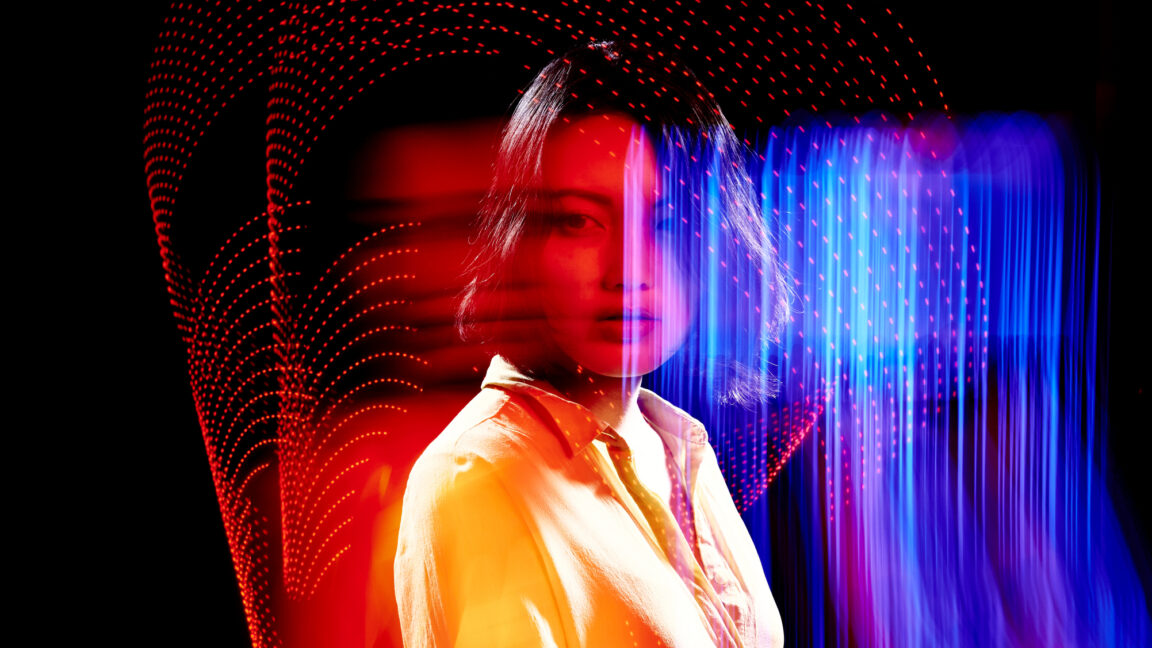- Регистрация
- 17 Февраль 2018
- Сообщения
- 38 920
- Лучшие ответы
- 0
- Реакции
- 0
- Баллы
- 2 093
Offline
Australia's online safety regulator asks for severe fine to combat flood of AI porn.


Credit: Mads Perch | Stone
A man who made global headlines after he continued sharing deepfake porn in defiance of an Australian court order is now facing one of the biggest fines ever threatened over the artificial intelligence-fueled abuse.
Australia's eSafety commissioner, Julie Inman Grant, has recommended a fine between $400,000 and $450,000, The Guardian reported, suggesting that it's warranted to deter other repeat offenders.
Fifty-three-year-old Anthony Rotondo, who divides his time between the Philippines and Australia, was ordered to take down AI-generated sexualized images of high-profile Australian women that Rotondo posted on the now-defunct Mr. Deepfakes site.
Earlier this month, that controversial site shut down forever after "a critical service provider" terminated the service "permanently," but there hasn't been much news of what happened to creators who uploaded tens of thousands of videos attracting more than 1.5 billion views. However, in a sign that more consequences may be coming, just this weekend, Denmark sought to extradite a Canadian pharmacist, David Do, who is suspected of playing a key role in operating Mr. Deepfakes. If convicted, Do could face up to six months in prison under Danish defamation laws and potentially additional charges elsewhere.
Rotondo is one of the first known Mr. Deepfakes creators, as verified by police. Instead of promptly removing the images, Rotondo was sanctioned $25,000 in December 2023 for defying that court order while continuing to target more victims in the days after he received it—allegedly including minors attending an Australian private school. While the names of his victims are supposed to be kept confidential, he also forwarded the court order to 49 email addresses, including to media outlets, which identified some of the victims. That email had another deepfake attached, The Guardian noted.
Australia reformed its laws to criminalize such deepfakes after Rotondo's arrest, which followed an Australian Broadcasting Corporation (ABC) investigation into "an anonymous online creator" targeting seven Australian public figures online. He may avoid the maximum six-year prison sentence under those reforms but has since been charged with five counts of obscene publications and exhibitions, as well as one count of obscene publication and exhibition of a child under 16 years, ABC reported.
In court, Rotondo "did not show any remorse or contrition for his conduct," Justice Roger Derrington said at the sanctions hearing, ABC reported. He apparently thought that the Australian order could not be enforced because he was a resident of the Philippines.
"Get an arrest warrant if you think you are right," Rotondo reportedly told officials prior to the sanctions hearing, the Brisbane Times reported.
Later, in front of the judge, he unsuccessfully argued that he didn't intend to out his victims by email. He claimed he didn't know the court order was attached to the email or that it contained his victims' names, The Guardian reported.
"The email I received had more than 80 pages of writing," Rotondo said. "I didn't read all the pages. I just forwarded the email."
Eventually, Rotondo gave police his passwords to delete the images posted on Mr. Deepfakes. But the judge noted that Rotondo appeared resistant to removing deepfakes and continued creating an unknown number of deepfakes—which may include further charges from Queensland police that he possibly targeted "a number" of facilities and businesses on the day he allegedly hit the high school. He perhaps was motivated to leave the images online, as toxic Mr. Deepfakes uploaders could earn as much as $1,500 for convincing non-consensual deepfakes of public figures.
"The history of the matter suggests that, were he still at liberty and perhaps in another country, he would not have been so accommodating," Derrington said.
Australia seeks to end “incalculable devastation”
Governments globally are grappling with a stark rise in non-consensual deepfake porn, with an ever-widening lens that targets not just the people who create and share images or the sites that host and sell them, but also the social media platforms that don't catch and delete the harmful content. Earlier this month, the US passed a law threatening heavy fines and prison time for platforms that don't remove the images when they're reported. Under that law, the Take It Down Act, Wired reported that platforms risk roughly $50,000 in penalties per violation if deepfakes aren't removed within 48 hours of receiving a report.
In Australia, Inman Grant wants to find a way to end the "lingering and incalculable devastation" that she said predominantly female victims must endure because it's "shockingly" free and easy to use "thousands of open-source AI apps" to make deepfake porn.
Because Rotondo seems to represent the kind of unapologetic repeat deepfaker who digs his heels in to defend his AI-generated fake sex images, Inman Grant asked for the maximum penalties on Monday. The eSafety commission's spokesperson told The Guardian that the request "reflected the seriousness of the breaches" and "the significant impacts on the women targeted."
"The penalty will deter others from engaging in such harmful conduct," the spokesperson said.


Credit: Mads Perch | Stone
A man who made global headlines after he continued sharing deepfake porn in defiance of an Australian court order is now facing one of the biggest fines ever threatened over the artificial intelligence-fueled abuse.
Australia's eSafety commissioner, Julie Inman Grant, has recommended a fine between $400,000 and $450,000, The Guardian reported, suggesting that it's warranted to deter other repeat offenders.
Fifty-three-year-old Anthony Rotondo, who divides his time between the Philippines and Australia, was ordered to take down AI-generated sexualized images of high-profile Australian women that Rotondo posted on the now-defunct Mr. Deepfakes site.
Earlier this month, that controversial site shut down forever after "a critical service provider" terminated the service "permanently," but there hasn't been much news of what happened to creators who uploaded tens of thousands of videos attracting more than 1.5 billion views. However, in a sign that more consequences may be coming, just this weekend, Denmark sought to extradite a Canadian pharmacist, David Do, who is suspected of playing a key role in operating Mr. Deepfakes. If convicted, Do could face up to six months in prison under Danish defamation laws and potentially additional charges elsewhere.
Rotondo is one of the first known Mr. Deepfakes creators, as verified by police. Instead of promptly removing the images, Rotondo was sanctioned $25,000 in December 2023 for defying that court order while continuing to target more victims in the days after he received it—allegedly including minors attending an Australian private school. While the names of his victims are supposed to be kept confidential, he also forwarded the court order to 49 email addresses, including to media outlets, which identified some of the victims. That email had another deepfake attached, The Guardian noted.
Australia reformed its laws to criminalize such deepfakes after Rotondo's arrest, which followed an Australian Broadcasting Corporation (ABC) investigation into "an anonymous online creator" targeting seven Australian public figures online. He may avoid the maximum six-year prison sentence under those reforms but has since been charged with five counts of obscene publications and exhibitions, as well as one count of obscene publication and exhibition of a child under 16 years, ABC reported.
In court, Rotondo "did not show any remorse or contrition for his conduct," Justice Roger Derrington said at the sanctions hearing, ABC reported. He apparently thought that the Australian order could not be enforced because he was a resident of the Philippines.
"Get an arrest warrant if you think you are right," Rotondo reportedly told officials prior to the sanctions hearing, the Brisbane Times reported.
Later, in front of the judge, he unsuccessfully argued that he didn't intend to out his victims by email. He claimed he didn't know the court order was attached to the email or that it contained his victims' names, The Guardian reported.
"The email I received had more than 80 pages of writing," Rotondo said. "I didn't read all the pages. I just forwarded the email."
Eventually, Rotondo gave police his passwords to delete the images posted on Mr. Deepfakes. But the judge noted that Rotondo appeared resistant to removing deepfakes and continued creating an unknown number of deepfakes—which may include further charges from Queensland police that he possibly targeted "a number" of facilities and businesses on the day he allegedly hit the high school. He perhaps was motivated to leave the images online, as toxic Mr. Deepfakes uploaders could earn as much as $1,500 for convincing non-consensual deepfakes of public figures.
"The history of the matter suggests that, were he still at liberty and perhaps in another country, he would not have been so accommodating," Derrington said.
Australia seeks to end “incalculable devastation”
Governments globally are grappling with a stark rise in non-consensual deepfake porn, with an ever-widening lens that targets not just the people who create and share images or the sites that host and sell them, but also the social media platforms that don't catch and delete the harmful content. Earlier this month, the US passed a law threatening heavy fines and prison time for platforms that don't remove the images when they're reported. Under that law, the Take It Down Act, Wired reported that platforms risk roughly $50,000 in penalties per violation if deepfakes aren't removed within 48 hours of receiving a report.
In Australia, Inman Grant wants to find a way to end the "lingering and incalculable devastation" that she said predominantly female victims must endure because it's "shockingly" free and easy to use "thousands of open-source AI apps" to make deepfake porn.
Because Rotondo seems to represent the kind of unapologetic repeat deepfaker who digs his heels in to defend his AI-generated fake sex images, Inman Grant asked for the maximum penalties on Monday. The eSafety commission's spokesperson told The Guardian that the request "reflected the seriousness of the breaches" and "the significant impacts on the women targeted."
"The penalty will deter others from engaging in such harmful conduct," the spokesperson said.
